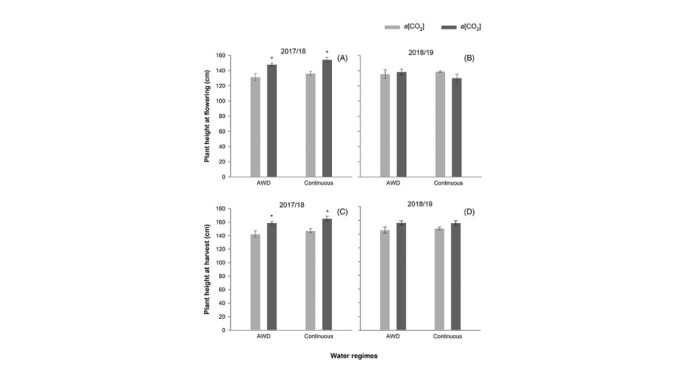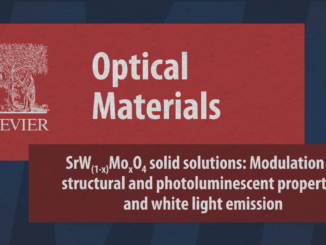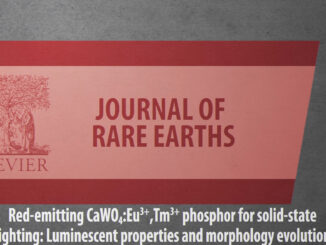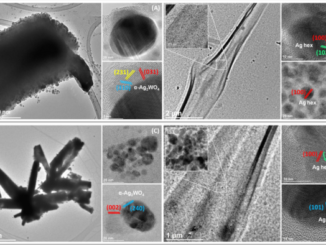
Rising atmospheric CO2 concentration affect weedy rice growth, seed shattering and seedbank longevity
Abstract: Weedy rice (Oryza sp.) is one of the most troublesome global weeds in cultivated rice. Its troublesome status is associated with characteristics such as seed shattering and dormancy, allowing for long-term reinfestation and persistence in rice fields. However, the role of rising carbon dioxide levels (CO2) and other climate variables on these characteristics has not, to date, been assessed. The current research objectives were to evaluate two aspects related to climatic change, increased CO2 concentration (400 ± 50 μmol mol−1 and 700 ± 50 μmol mol−1) and water management (continuous and alternate-wetting drying), to assess plant development, seed shattering and seedbank longevity of weedy rice. Our results indicated that elevated CO2 (700 ± 50 μmol mol−1) increased weedy rice growth and biomass, seed shattering and lengthened viability within the seedbank. Water management did not affect weedy rice growth, seed shattering and seed dormancy. These results suggest that in areas where weedy rice is dominant, its seed bank persistence and potential competition may be exacerbated with rising CO2 levels, with negative consequences for rice production.
Author(s): Balbinot, A.; da Rosa Feijo, A.; Fipke, M. V.; Gehrke, V. R.; Agostinetto, D.; Kruse, N. D.; Ziska, L. H.; Camargo, E. R.; de Avila, L. A.
Weed Research
Published: 26 April 2022
DOI: https://doi.org/10.1111/wre.12536
CDMF
The CDMF, hosted at the Federal University of São Carlos (UFSCar), is one of the Research, Innovation and Dissemination Centers (RIDC) supported by the São Paulo State Research Support Foundation (Fapesp), and also receives investment from the National Council Scientific and Technological Development (CNPq), from the National Institute of Science and Technology of Materials in Nanotechnology (INCTMN).




